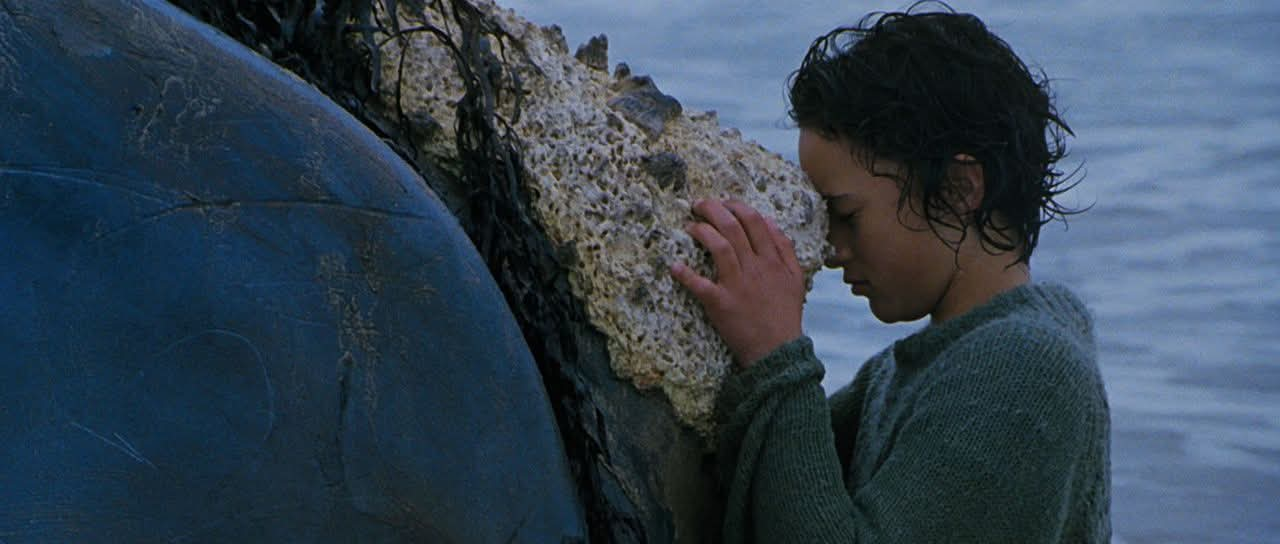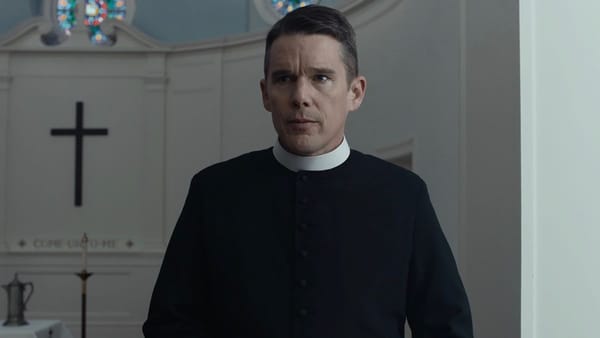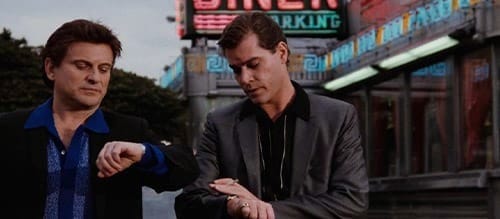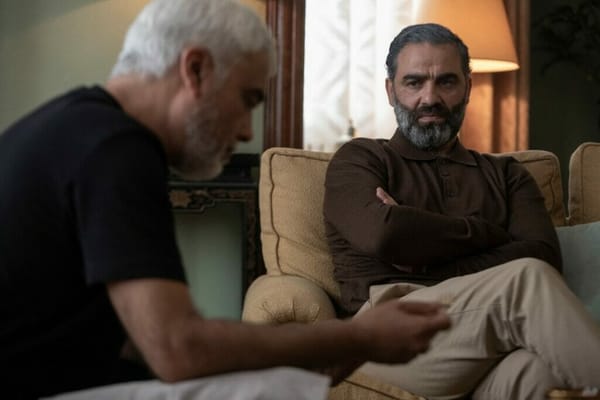Small hero, vast heart.

WHALE RIDER is one of the rare films that earns the respect it receives. It doesn’t manipulate emotion. It doesn’t flatten culture into symbols for outsiders. It doesn’t sand down the rough edges of community conflict. Its power comes from its restraint — its willingness to depict daily life, generational tension, and grief without choreographing those things for a Western gaze.
One of the most striking aspects of the film is how it portrays tradition. Keisha Castle-Hughes, only eleven during filming, carries the story with an almost startling emotional clarity. She never plays Pai as a Western-style “chosen one.” She plays her as a child navigating expectations she didn’t ask for, wanting the same things any child wants: belonging, meaning, the approval of someone who matters. Her struggles aren’t mythic; they’re human. She isn’t fighting abstract forces. She’s facing a grandfather who cannot see her potential because he fears breaking with ancestral patterns.
Koro embodies that fear, and Rawiri Paratene plays him with a mix of authority and vulnerability that keeps him from ever becoming a villain. He isn’t harsh because he despises Pai — he’s terrified. Terrified of failing the line, terrified of being remembered as the elder who let the ancestors down. That fear, shared by many Indigenous communities worldwide, is the fear that adapting to the present might erase the past. WHALE RIDER addresses this tension with painful honesty. Tradition becomes both a source of identity and a barrier to those seeking a place within it.
The film’s emotional impact grows from its refusal to overexplain. It doesn’t pause to lecture the audience on Māori cosmology. It trusts viewers to observe, absorb, and respect. The spiritual elements — especially the whales — are not metaphors repackaged for outsiders. They matter because they matter to the community. Their presence is relational, not symbolic, carrying history the way carving carries lineage in its grooves.
Even the whales’ beaching avoids spectacle. It feels like rupture, something communal, sacred, and devastating. The desperation that follows isn’t exaggerated for dramatic effect; it feels lived-in, familiar to anyone who understands how land, water, and people exist in relationship. When Pai steps forward, the scene refuses destiny framing. It’s responsibility — a child addressing an imbalance that adults have become too frightened or too proud to face. Vicky Haughton’s warmth as Pai’s grandmother deepens this honesty, softening the film without weakening it.
The coastline in WHALE RIDER is more than scenery. It is presence. Across Indigenous communities — Nunavut, Haida Gwaii, Navajo Nation, Aotearoa — land is never background. It is teacher, ancestor, memory. The film captures this with patience: the ocean becomes another character, ancient and steady, sometimes kind, sometimes unforgiving. The camera never treats it as a postcard. It treats it as lineage.
The music works the same way. It doesn’t exoticize. It supports. It never turns culture into ambiance or consumable texture.
What makes WHALE RIDER endure is its honesty about tradition itself. It doesn’t fossilize or romanticize it. Instead it shows how tradition can uplift and suffocate, protect and exclude. It shows elders fighting to defend something sacred, even when that defense unintentionally wounds the next generation. It shows how grief travels through families, how expectations become pressure, how love becomes fear. And it shows that change, when done with care, isn’t betrayal — it’s continuity.
Pai’s leadership grows not from rebellion but from love. She doesn’t want power. She wants to belong. She wants to carry the legacy forward in a way that includes her instead of pushing her aside. Her arc is tender, believable, and grounded in the kind of quiet courage familiar to Indigenous stories where leadership is measured by service rather than dominance.
More than twenty years later, WHALE RIDER remains emotionally honest. It respects the community it portrays without idealizing or simplifying it. It resonates deeply with anyone who has ever listened to Indigenous voices — not appropriated them, not romanticized them, but listened. It understands grief, responsibility, and the weight of inheriting a legacy you didn’t choose but love anyway.
Some films fade the moment the credits roll. WHALE RIDER lingers. It stays with you the way salt air does — quiet, steady, impossible to forget. And the older you get, the more it reveals: not just Pai’s story, but the truth that tradition survives not through perfect obedience, but through those willing to love it forward.




